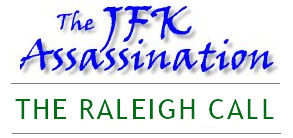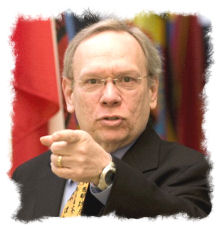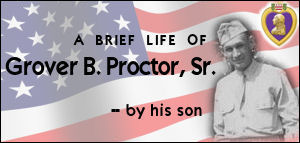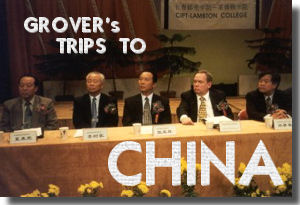excerpt from paperback edition of
Conspiracy by Anthony Summers
copyright 1989
New York: Paragon House
pp. 145-146
On November 22, 1963, once Oswald was safely installed in a cell on the fifth floor of the Dallas City Hall, Police Chief Curry gave instructions that the prisoner should be allowed all the usual rights and privileges. According to routine Dallas police reports, Oswald asked to use the telephone on Saturday, the day after the assassination. The police record shows that he was allowed to do so at least twice, at about 4:00 p.m. and 8:00 p.m. Apparently he twice reached Ruth Paine, the woman who owned the house where Oswald's wife, Marina, was living, and talked to her about his search for legal assistance. He also "failed to complete" another call. According to one of the switchboard operators, he also tried to make a call later that night. The operator, Mrs. Treon, remembers the incident because of the unusual circumstances. She says that her colleague, Mrs. Swinney, had been forewarned that law-enforcement officers -- she thinks it may have been Secret Servicemen -- would be coming to listen in on an Oswald call. Sure enough two men arrived, showed identification, and were shown into a room next to the switchboard. At about 10:45 p.m. a red light blinked on the panel showing that someone was placing a call from the jail telephone booth. Both telephone operators rushed to plug in, and in the event Mrs. Swinney handled the call, with Mrs. Treon listening in avidly. According to Mrs. Treon, a curious thing then occurred. Operator Swinney spoke to the two officers eavesdropping in the next room and told them Oswald was placing the expected call. As Mrs. Treon tells it: "I was dumbfounded at what happened next. Mrs. Swinney opened the key to Oswald and told him, 'I'm sorry, the number doesn't answer.' She then unplugged and disconnected Oswald without ever really trying to put the call through. A few moments later Mrs. Swinney tore the page off her notation pad and threw it into the wastepaper basket." Mrs. Treon says she later retrieved the note referring to the Oswald call, and kept a copy as a souvenir. Recent research, including inquiries by Congress' Assassinations Committee, indicates that -- assuming Mrs. Treon's record is accurate, Oswald intended to call a man named "Hurt" in Raleigh, North Carolina. The note lists two alternative numbers, which do relate to listed subscribers of that name. Both men, contacted today, deny all knowledge of the Oswald call. There has been concern, however, because one of the two -- John D. Hurt -- served in U.S. Military Intelligence during World War II. The Chief Counsel of Congress' Assassinations Committee, Professor Blakey, says, "It was an outgoing call, and therefore I consider it very troublesome material. The direction in which it went was deeply disturbing."*
Former CIA officer Victor Marchetti observes that the Oswald call was directed at a number in the same general area as the North Carolina base where -- says Marchetti -- U.S. Naval Intelligence once planned infiltration missions into the Soviet Union. For all the mass of minute detail about Oswald's life, and although we have his address book, Oswald had no known contacts in North Carolina. Unless further research resolved the mystery, this Oswald call remains yet another loose end in the assassination story.
* Some theorize that the aborted call was incoming; not an attempt by Oswald to call out.
Sources and notes:
Treon/Swinney episode: statement by Treon to Bernard Fensterwald, Committee to Investigate Assassinations; [Grover Proctor's articles on The Raleigh Call in] Raleigh [NC] Spectator, 17 & 24 July 1980; Raleigh [NC] News & Observer, July 17, 1980.
excerpt from original hardback edition of
Conspiracy by Anthony Summers
copyright 1980
New York: McGraw Hill Book Company
pp. 175-176
On November 22, 1963, once Oswald was safely installed in a cell on the fifth floor of the Dallas City Hall, Police Chief Curry gave instructions that the prisoner should be allowed all the usual rights and privileges. According to routine Dallas police reports, Oswald asked to use the telephone on Saturday, the day after the assassination. The police record shows that he was allowed to do so at least twice, at about 4:00 p.m. and 8:00 p.m. Apparently he twice reached Ruth Paine, the woman who owned the house where Oswald's wife, Marina, was living, and talked to her about his search for legal assistance. He also "failed to complete" another call. According to one of the switchboard operators, he also tried to make a call later that night. The operator, Mrs. Treon, remembers the incident because of the unusual circumstances. She says that her colleague, Mrs. Swinney, had been forwarnded that law-enforcement officers -- she thinks it may have been Secret Servicemen -- would be coming to listen in on an Oswald call. Sure enough two men arrived, showed identification, and were shown into a room next to the switchboard. At about 10:45 p.m. a red light blinked on the panel showing that someone was placing a call from the jail telephone booth. Both telephone operators rushed to plug in,and in the event Mrs. Swinney handled the call, with Mrs. Treon listening in avidly. According to Mrs. Treon, a curious thing then occurred. Operator Swinney spoke to the two officers eavesdropping in the next room and told them Oswald was placing the expected call. As Mrs. Treon tells it: "I was dumbfounded at what happened next. Mrs. Swinney opened the key to Oswald and told him, 'I'm sorry, the number doesn't answer.' She then unplugged and disconnected Oswald without ever really trying to put the call through. A few moments later Mrs. Swinney tore the page off her notation pad and threw it into the wastepaper basket." Mrs. Treon says she later retrieved the note of the telephone number Oswald had called -- as a souvenir -- and kept it until years later, when she was interviewed by a lawyer looking into the Oswald case.
The note preserved by Mrs. Treon reportedly shows that Oswald booked a call to Area Code 919 and that it was personal to somebody called either "Herty" or "Hertig." Apparently the original writer, the telephone operator, was not clear of the exact name.
Today former CIA officer [Victor] Marchetti draws attention to the telephone number, which related, in 1963, to a subscriber in Raleigh, North Carolina. Marchetti points out that this is in the same general areas as the North Carolina base where -- according to him -- U.S. Naval Intelligence once planned infiltration missions into the Soviet Union. For all the mass of minute detail about Oswald's life, and although we have his address book, Oswald had no known contacts in North Carolina. Unless further research resolved the mystery, this Oswald call remains yet another loose end in the assassination story.*
* Some theorize that the aborted call was incoming; not an attempt by Oswald to call out.
Sources and notes:
Treon/Swinney episode: interview with and statement of Mrs. Treon obtained by Bernard Fensterwald, Committee to Investigate Assassinations
|






